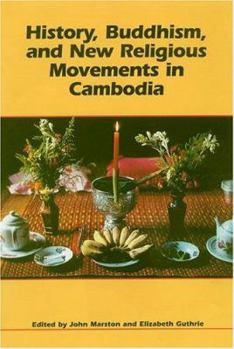History, Buddhism, and New Religious Movements in Cambodia
This volume showcases some of the most current and exciting research being done on Cambodian religious ideas and practices by a new generation of scholars from a variety of disciplines. The different contributors examine in some manner the relationship between religion and the ideas and institutions that have given shape to Cambodia as a social and political body, or nation. Although they do not share the same approach to the idea of "nation," all are concerned with the processes of religion that give meaning to social interaction, which in some way includes "Cambodian" identity. Chapters touch on such far-reaching theoretical issues as the relation to religion of Southeast Asian polity; the nature of colonial religious transformation; "syncretism" in Southeast Asian Buddhism; the relation of religious icon to national identity, religion, and gender; transnationalism and social movements; and identity among diaspora communities.
While much has been published on Cambodia's recent civil war and the Pol Pot period and its aftermath, few English language works are available on Cambodian religion. This book takes a major step in filling that gap, offering a broad overview of the subject that is relevant not only for the field of Cambodian studies, but also for students and scholars of Southeast Asian history, Buddhism, comparative religion, and anthropology. Contributors: Didier Bertrand, Penny Edwards, Elizabeth Guthrie, Hang Chan Sophea, Anne Hansen, John Marston, Kathryn Poethig, Ashley Thompson, Teri Shaffer Yamada.




